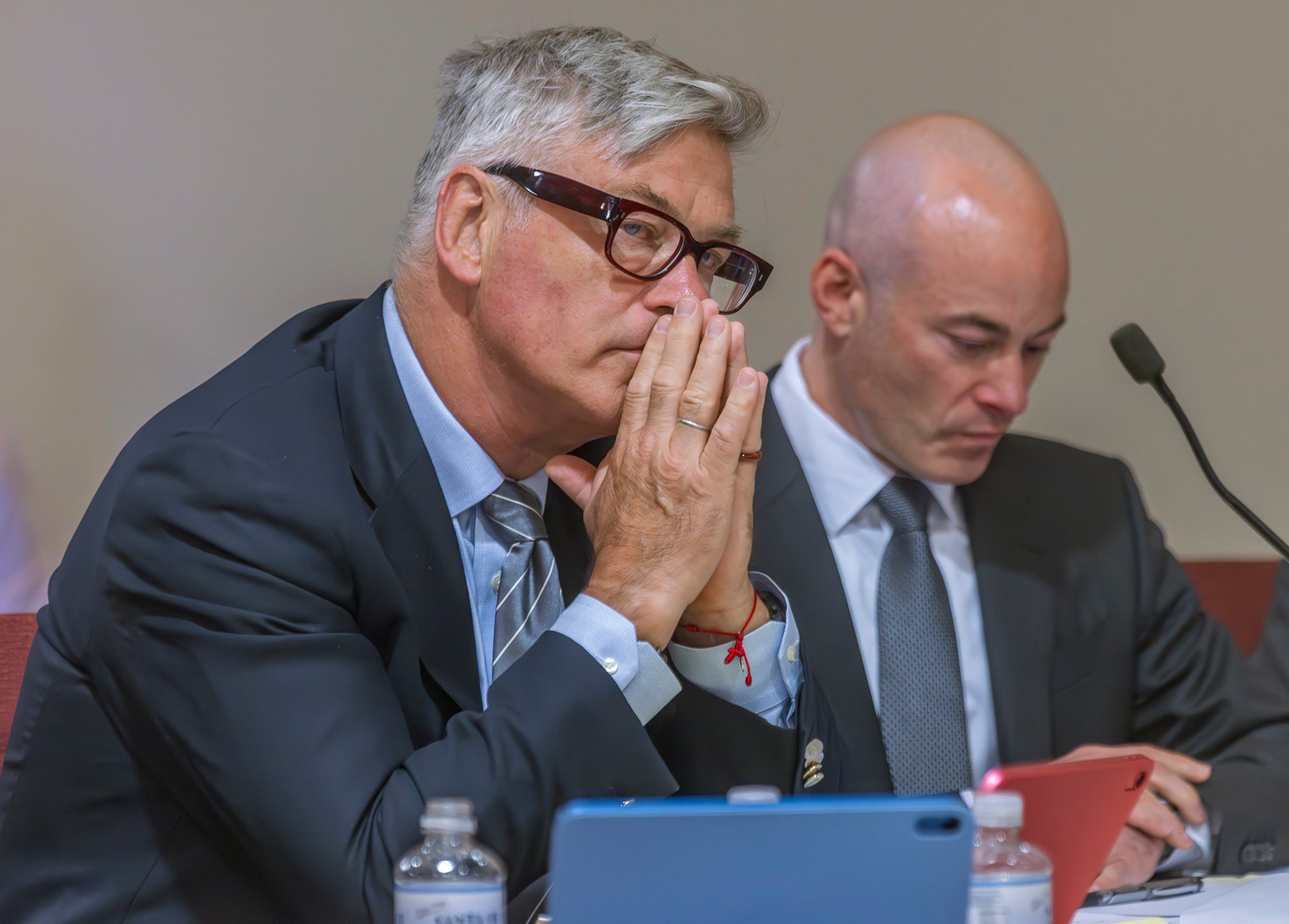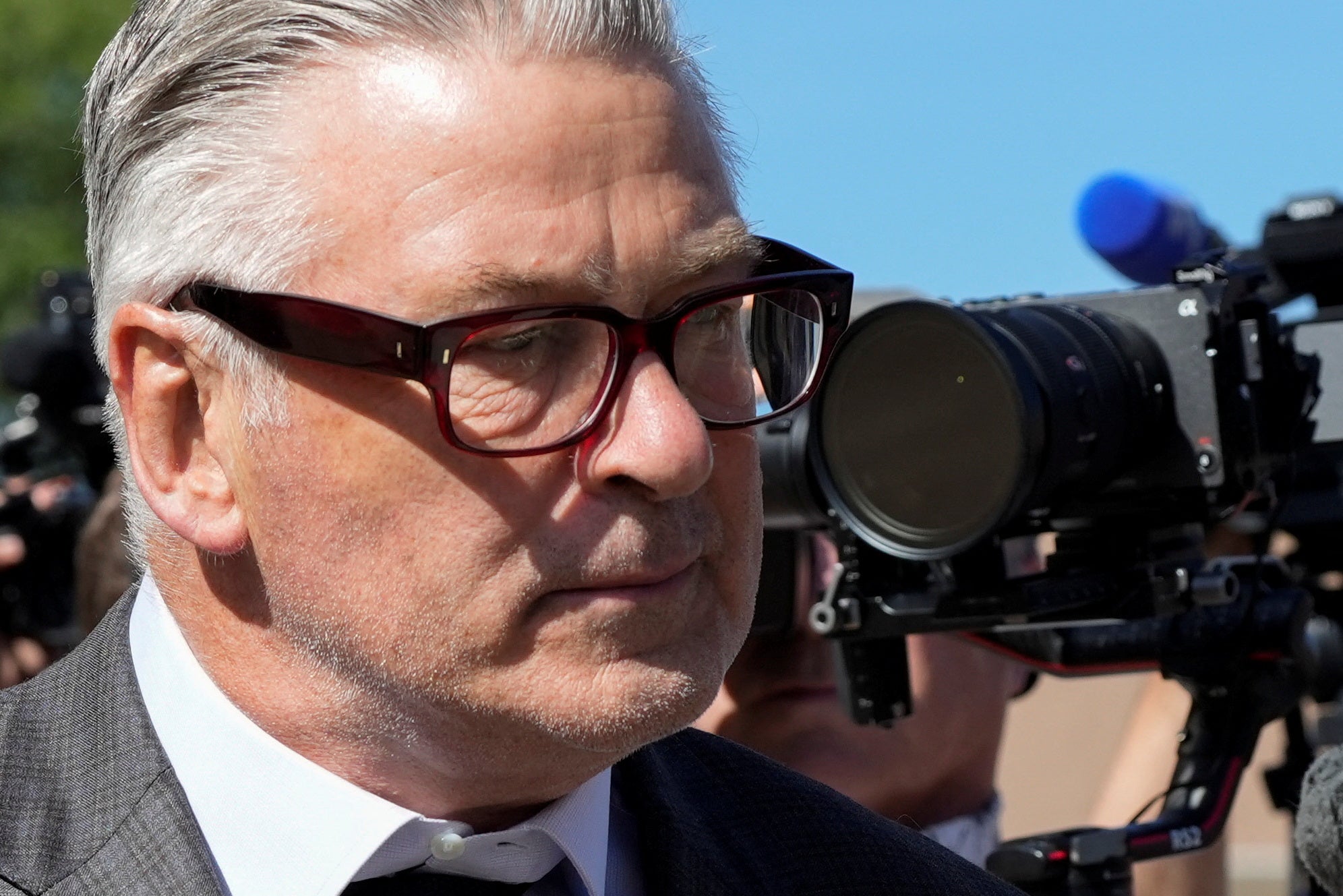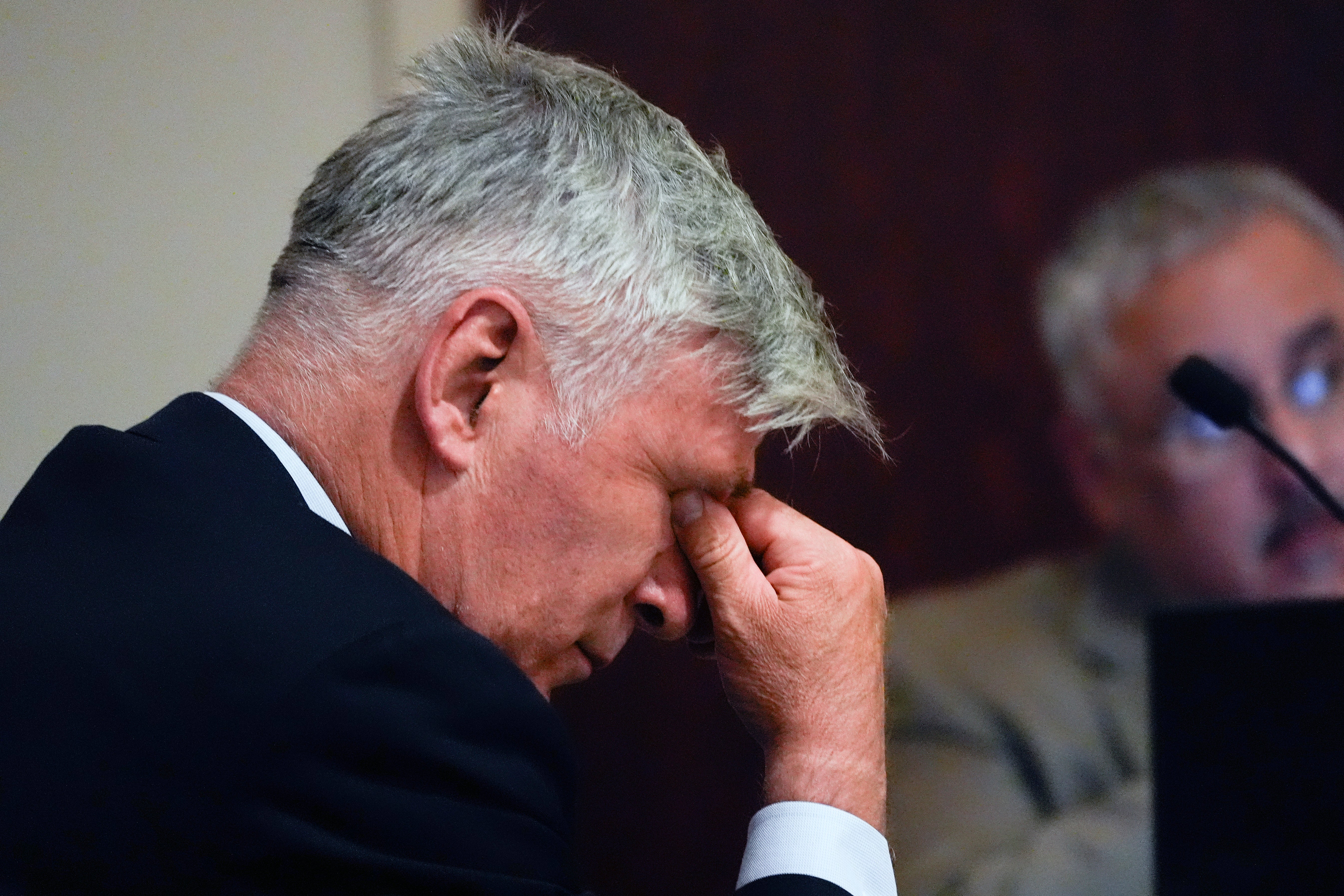Alec Baldwin trial: Gun safety in the spotlight in actor’s manslaughter case
Prosecutors say they’ll present evidence that Baldwin went ‘off script’ and failed to follow basic industry standards

A jury is set to hear opening statements on Wednesday at the involuntary manslaughter trial of Alec Baldwin in the fatal shooting of a cinematographer.
The trial will delve into the confluence of gun safety, high-wattage celebrity and a low-budget Western movie on a remote ranch set.
Prosecutors and defense attorneys selected 16 jurors — 11 women and five men — on Tuesday, seating a jury from a region with strong currents of gun ownership and safety informed by backcountry hunting. Four of the jurors will be deemed alternates while the other 12 deliberate once they get the case.
The shooting death of cinematographer Halyna Hutchins, a 42-year-old rising star in her craft, nearly three years ago sent shock waves through the film industry and led to one felony charge against Baldwin that could result in up to 18 months in prison.
Baldwin has pleaded not guilty as he returns to the desert Southwest for the trial at a downtown courthouse in Santa Fe, a short drive from the movie-ranch setting of scenes from “Rust."
Baldwin has claimed the gun fired accidentally after he followed instructions to point it toward Hutchins, who was behind the camera. Unaware that it was loaded with a live round, he said he pulled back the hammer — not the trigger — and it fired.
Prosecutors say they'll present evidence that Baldwin went “off script” and failed to follow basic industry standards for firearms safety when he pointed the firearm at Hutchins on Oct. 21, 2021.
“At the end of the day, the prosecutor’s main theory is that this was a gun involved, and Baldwin had a gun in his hand, and it doesn’t matter if it’s a film set or hunting safety class, you’re responsible for what comes out of the end of the barrel,” said John Day, a Santa Fe-based defense attorney and former prosecutor.

Baldwin attorney Alex Spiro probed prospective jurors on Tuesday for strong opinions about gun safety and asked whether a person must entirely take responsibility for whether a gun is loaded or may “rely on experts, does anybody have a problem with that?”
Most who answered said they always treat a gun as if it were loaded.
Baldwin, the star of “Beetlejuice,” “Glengarry Glen Ross” and “30 Rock” who has been a household name as an actor and public personality for more than three decades, also served as co-producer on “Rust,” which had an initial budget of roughly $7.5 million — a low figure by labor union standards. Judge Mary Marlowe Sommer ruled shortly before trial that his producer status is not relevant to the case.
Workplace safety investigators and prior court testimony confirmed two gun misfires on set before the fatal shooting, while six crew members walked off set on the eve of Hutchins' death over concerns including hotel accommodations and safety.
Marlowe Sommer put a summary of those findings off-limits at the request of prosecutors, who describe that investigation as unreliable.
In court filings, defense attorneys have highlighted that the armorer, Hannah Gutierrez-Reed, already has been found responsible for the shooting, along with testimony that the gun had been checked by an assistant director before it was handed to Baldwin — and that the shooting was incomprehensible and shocking to the entire movie crew because of their belief that there was no live ammunition on set.
Gutierrez-Reed is serving an 18-month prison sentence as she appeals her conviction in March on a charge of involuntary manslaughter. Prosecutors cast blame on her for allowing live rounds to make their way onto the film set undetected, in a trial that also highlighted video of Baldwin rushing weapons supervisors to reload his revolver and waving the gun as a pointing stick.

Prosecutors have two alternative standards for proving the charge. One is based on the negligent use of a firearm. The other is proving beyond a reasonable doubt that Baldwin acted with total disregard or indifference for the safety of others.
Testimony at trial will delve into shortcomings in a final safety check of the gun before Baldwin began rehearsing with it, as well as the mechanics of the weapon and whether it could have fired without a trigger pull. The live bullet that killed Hutchins also wounded director Joel Souza.
Day says that Baldwin's insistence that he never pulled the trigger, first voiced in a December 2021 interview with ABC News, narrows the options for the defense at trial.
“Because he said that to George Stephanopoulos, the defense has got to try to show that, well, the gun will just go off if you look at it funny," Day said. “They've also got to bring in experts on the film business who can say, ‘You know, if somebody hands an actor a gun and tells him it’s safe, then he should believe them.'”
Los Angeles-based civil defense attorney Mark Sedlander said it's unusual for an accidental workplace death to reach criminal trial but that the fatal shooting on “Rust” touches on fundamental safety concerns in the workplace.
“This is a case about a woman who was tragically killed while she was at work, away from her family, doing her job, just like Americans across this country, and she went to work one day and she never came back,” said Sedlander of the Mancini Shenk law firm.
Prosecutors initially dismissed an involuntary manslaughter charge against Baldwin in April 2023, saying they were informed the gun might have been modified before the shooting and malfunctioned.
A more recent analysis of the gun commissioned by prosecutors concluded the “trigger had to be pulled or depressed sufficiently to release the fully cocked or retracted hammer."
Defense attorneys contend that destructive testing of the gun by the FBI that broke pieces of the firing mechanism may have destroyed evidence that could possibly exonerate Baldwin.
Bookmark popover
Removed from bookmarks